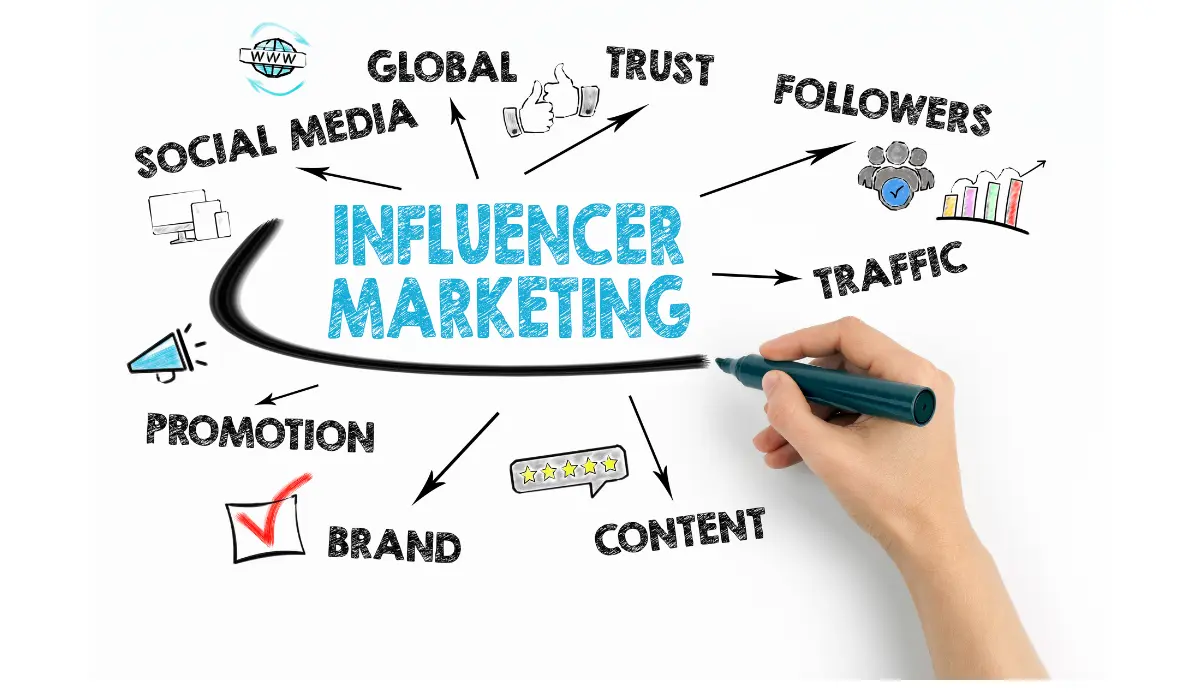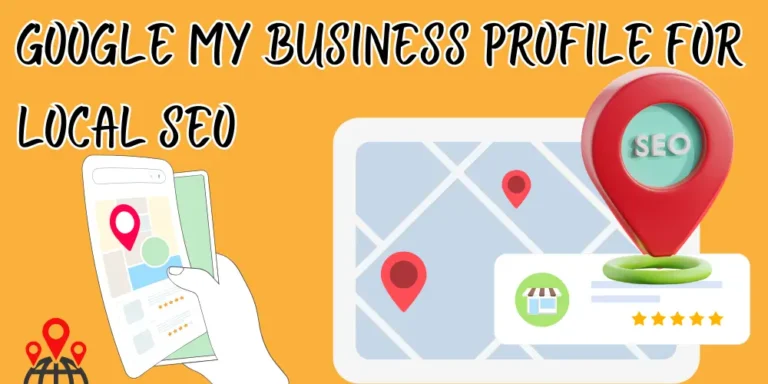The Influencer Marketing strategies for Brand Growth
In today’s fast-paced online world, traditional advertising methods are losing their effectiveness. More people rely on social media and the internet for advice on purchases and trends. This shift has made influencer marketing strategies for brand growth a game-changer for businesses. What are the benefits of using influencers for marketing, and why is it valuable for companies? Let’s dive in.
What is Influencer Marketing?
Definition
Influencer marketing uses social media to promote products by getting influencers, who are experts with a lot of followers, to endorse or show products to their audience.
Types of Influencers
Mega-Influencers
Mega-influencers are famous people with millions of fans. They can reach a lot of people, but they usually cost a lot.
Macro-Influencers
Macro-influencers have loads of followers. They’re famous in certain areas and are a good mix of being seen by a lot of people and not costing too much.
Micro-Influencers
Micro-influencers have fewer followers, usually between 10,000 and 100,000. They connect well with their followers and are seen as more genuine.
Nano-Influencers
Nano-influencers have fewer than 10,000 followers and are very connected with their audience, so their advice is trusted a lot.
Benefits of Influencer Marketing for Brands
Influencer marketing strategies for brand growth have emerged as a powerful tool for brands seeking to boost visibility, engage with target audiences, and drive sales. This blog will explore the multifaceted benefits of influencer marketing, focusing on its impact on credibility, content creation, SEO, cost-effectiveness, conversions, audience reach, engagement, trust-building, and overall brand awareness.
Why Do Brands Need Influencer Marketing?
In today’s world, where people face a constant bombardment of advertisements, it becomes impossible to establish marketing techniques to capture the attention of consumers. As a result, influencers have emerged as a new way to reach potential customers.
- Authenticity and Trust:
Influencers are perceived as relatable figures rather than traditional advertisers. Their recommendations often feel more genuine, fostering trust among followers. - Targeted Reach:
Brands can reach smaller groups by working with influencers who focus on certain groups or topics. - Enhanced Engagement:
Influencers often engage their followers well, which can result in deeper connections and stronger loyalty to the brand. - Cost-Effectiveness:
Influencer marketing is cheaper than traditional advertisements and often gives better results.
Benefits of Influencer Marketing
1. Credibility
Influencers often serve as credible sources of information in their respective niches. Their followers trust their opinions and recommendations, which can significantly enhance a brand’s credibility when endorsed by a trusted influencer. This credibility translates into higher conversion rates as consumers are more likely to purchase products recommended by someone they admire.
2. Content Creation
Collaborating with influencers allows brands to access high-quality content that resonates with their target audience. Influencers are skilled content creators who understand how to engage their followers effectively. This partnership not only provides brands with fresh content but also ensures that the messaging aligns with the audience’s preferences.
3. Improves SEO
Influencer marketing strategies for brand growth can positively impact a brand’s search engine optimization (SEO) efforts. When influencers create content featuring a brand and share it across their platforms, it generates backlinks and increases online visibility. This can lead to improved rankings on search engines, driving organic traffic to the brand’s website.
4. Cost-Effective
Influencer marketing is often more cost-effective than traditional advertising channels such as television or print media. Brands can collaborate with micro-influencers who have smaller but highly engaged audiences at a fraction of the cost of partnering with major celebrities.
5. Higher Conversions
Influencer marketing has been shown to drive higher conversion rates compared to other forms of advertising. According to studies, consumers are more likely to make purchases after seeing products endorsed by influencers they follow, leading to increased sales for brands.
6. Reach Your Target Audience
Influencers have established communities that align closely with specific interests and demographics. By partnering with the right influencers, brands can effectively reach their target audience without wasting resources on broad advertising campaigns.
7. Targeted Reach
Influencers allow brands to target specific niches effectively. For instance, a beauty brand can collaborate with beauty influencers who cater specifically to makeup enthusiasts or skincare aficionados, ensuring that the message reaches those most likely to convert.
8. Boost Engagement
Engagement is crucial in today’s digital marketing landscape. Influencers often generate higher engagement rates than brands themselves because they foster authentic relationships with their followers. This engagement translates into more interactions with the brand’s content and increased visibility.
9. Improved Engagement
When brands collaborate with influencers who resonate with their audience, they experience improved engagement on social media platforms. Followers are more likely to comment on, share, and interact with content that features influencers they admire.
10. Influencers Can Improve Your SEO
As mentioned earlier, influencer-generated content can enhance a brand’s SEO strategy through backlinks and increased online visibility. Additionally, when influencers mention or tag a brand in their posts, it creates social signals that can positively impact search engine rankings.
11. Influencers Inspire Purchases
The persuasive power of influencers is undeniable; they inspire purchases through authentic storytelling and personal experiences shared with their followers. This influence can lead to immediate sales spikes following an influencer’s endorsement.
12. Build Trust
Trust is essential in any consumer-brand relationship. Influencers help build this trust by providing honest reviews and recommendations based on personal experiences with products or services.
13. Increase Sales
Ultimately, the goal of any marketing strategy is to drive sales. Influencer marketing strategies for brand growth have proven effective in increasing sales figures for brands across various industries due to their ability to connect authentically with potential customers.
Reaching New Audiences
One of the standout advantages of influencer marketing is its ability to help brands reach new audiences effectively:
- Research Influencers in Your Industry:
Identifying influencers within your industry allows you to tap into established communities that may not be familiar with your brand yet. - You Can Target Niche Audiences:
Collaborating with niche influencers enables you to reach specific segments of the market that align closely with your product offerings. - Build Brand Credibility:
Partnering with reputable influencers enhances your brand’s credibility among new audiences who may be sceptical about unfamiliar products or services. - Builds Winning Partnerships:
Long-term partnerships between brands and influencers create a sense of reliability and consistency in messaging that resonates well over time.
Crack New Markets
Influencer marketing serves as an effective strategy for entering new markets:
- Drive Purchase Decisions:
When influencers endorse products within new markets, they can significantly influence purchase decisions among consumers unfamiliar with the brand. - Increase Reach:
By leveraging the existing follower base of influencers in new markets, brands can expand their reach exponentially without significant investment in traditional advertising methods. - Increased Brand Awareness:
The visibility gained through influencer partnerships leads to heightened awareness of your brand among potential customers who may not have previously encountered it.
Is Influencer Marketing Good or Bad?
While influencer marketing presents numerous benefits, it also comes with challenges:
- Pros:-
- Authentic engagement
- Increased credibility
- Cost-effective compared to traditional advertising
- Cons:-
- Potential for misalignment between brand values and influencer persona
- Risk of negative publicity if an influencer behaves unethically
- Difficulty measuring ROI accurately
What Is the Success Rate of Influencer Marketing?
The success rate of influencer marketing varies based on several factors including industry type, campaign goals, and influencer selection:
- Studies indicate that approximately 70% of consumers are more likely to remember a brand when promoted by an influencer.
- Brands report higher engagement rates and conversion rates from campaigns involving influencers compared to those using traditional advertising methods.
Advantages and Disadvantages of Influencer Marketing
| Advantages | Disadvantages |
|---|---|
| Authentic connections | Risk of negative associations |
| Enhanced reach | Difficulty in measuring effectiveness |
| Cost-effective | Potential for influencer fatigue |
| Increased engagement | Misalignment between brand and influencer |
| Improved SEO | Dependence on platform algorithms |
The 3 R’s of Influencer Marketing
To maximize the effectiveness of influencer marketing campaigns, brands should focus on the following three R’s:
- Relevance:-
Ensure that the chosen influencer aligns closely with your brand values and target audience. - Reach:-
Consider the size of the influencer’s audience and how well it matches your target demographic. - Resonance:-
Evaluate how well the influencer’s content resonates with their audience, this will impact engagement levels and ultimately conversions.
Conclusion
In conclusion, influencer marketing strategies for brand growth offer numerous benefits for brands seeking success in today’s competitive landscape. By leveraging credibility, enhancing content creation efforts, improving SEO strategies, driving conversions, reaching targeted audiences effectively, boosting engagement levels, building trust, increasing sales potential, and cracking new markets—brands can harness the power of influencers for sustainable growth.
As you consider implementing influencer marketing strategies for brand growth, remember that careful selection of partners aligned with your values is crucial for achieving long-term success while navigating potential challenges.



